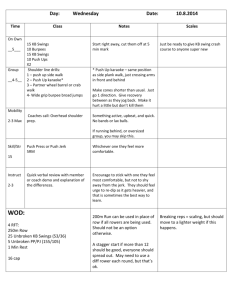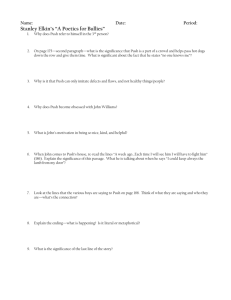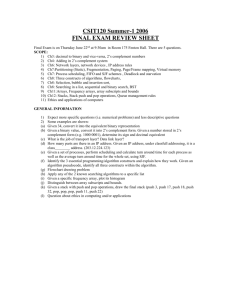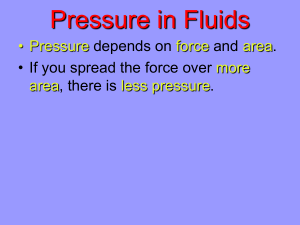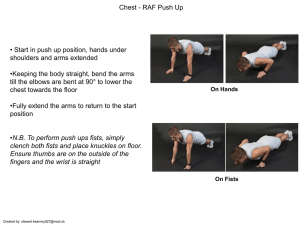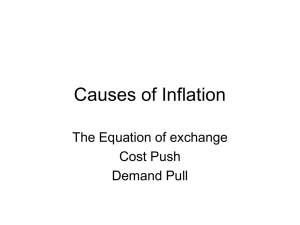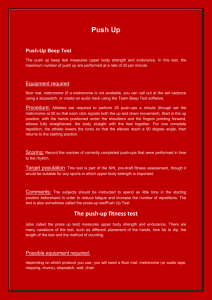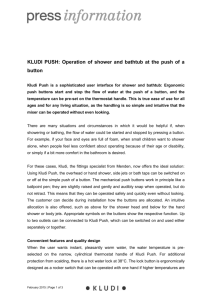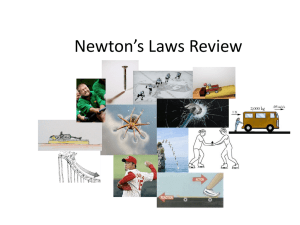Efficiency
advertisement
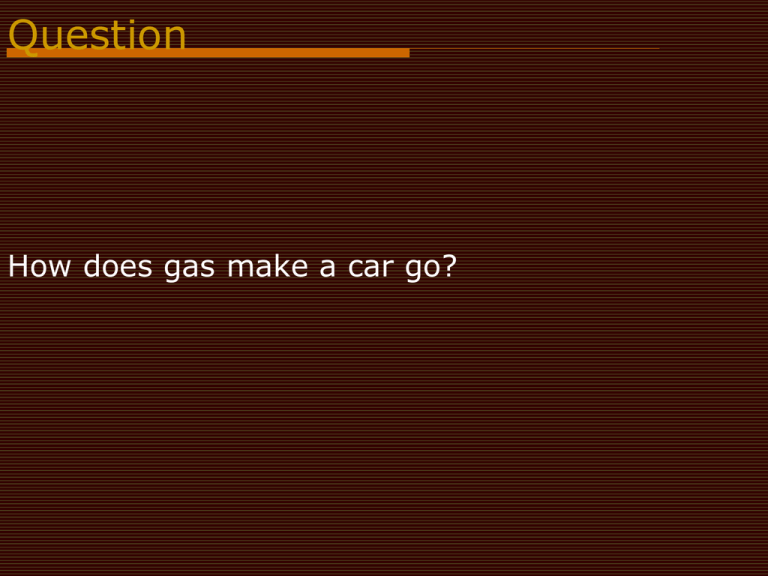
Question How does gas make a car go? Energy and Work Which of these will take more “energy” from your body? Which will make you more tired to move? Energy and Work Which of these will take more “energy” from your body? Which will make you more tired to move? Energy and Work Which path below will take more energy as you push the lawnmower? Energy and Work Which path below will take more energy as you push the lawnmower? Energy and Work Definition of energy To “use up” more energy, we can either push really hard or push really far. So energy is how we combine force times distance. Vocabulary Energy How we use force to move something over a distance. Energy and Work How this helps us If we can’t figure out how much energy something will take to move, we can’t move things well! Energy and Work What is work? In physics, we call using energy “work”. This isn’t like when you use the everyday word for “work”. In physics, it means something very specific. Vocabulary Work A force applied over a distance. How hard we push something and how far it goes. Energy and Work Units So how do we measure work? Energy and Work Units So how do we measure work? We need a new unit. One that can describe energy. We call it a Joule. (N*m) (kg * m/s2 *m) (kg * m2 /s2) This is energy it takes to lift up 1 kg a distance of 1 meter. Your body releases 100J as heat every second. Energy and Work A few things to know Look at some extreme cases If you push super hard and something moves only a little, you still do a lot of work. (big force, small distance) Energy and Work A few things to know Look at some extreme cases If you push super hard and something moves only a little, you still do a lot of work. (big force, small distance) If you barely push at all but something moves really far, you still do a lot of work. (small force, big distance) Energy and Work A few things to know Look at some extreme cases If you push super hard and something moves only a little, you still do a lot of work. (big force, small distance) If you barely push at all but something moves really far, you still do a lot of work. (small force, big distance) If you push really hard, but something doesn’t move at all, you do zero work. Question This kid is pushing against the door with a force of 1,000 N, but the door isn’t moving. Is he doing any work on the door? Equation Work w=F•d w= work. (measured in joules) J F= Force. (measured in newtons) N d= distance (measured in meters) m Tells us the energy it takes if we use force to push a mass over a distance. Joule (N*m) (kg * m/s2 *m) (kg * m2 /s2) Efficiency X 100% Efficiency = Output Work / Input Work X 100% 1. You do 20J of work while using a hammer. The hammer does 18J of work on a nail. What is the efficiency of the hammer? 2. Suppose you left your lawn mower outdoors all winter. Now it’s rusty. Of your 250,000J of energy only 100,000J go to cutting the lawn. What is the efficiency of the lawn mower now? 3. What is the efficiency of a cyclist who applies 9 N of force to his bicycle to climb a hill 100m long while the bike needs 75 J to actually climb the hill? What could be the reason for this level of efficiency? 4. A certain light bulb consumes 200J of electrical energy per second, but only emits 25J of light energy per second. Calculate the efficiency of this bulb 5. A certain large wind turbine is able to transform 1,500,000J of mechanical energy into 1,000,000J of electrical energy every second. Calculate the efficiency of this turbine. 6. A certain solar panel is capable of absorbing 750J of light energy every second, and converting 150J of that energy into electrical energy. a. How much energy is ‘lost’ in the form of heat by the solar panel every second? b. What is the efficiency of this solar panel? 7. An automobile gasoline engine is able to do 225 J of useful work with each stroke of its pistons. a. If the engine has an efficiency of 29.0 percent, what is the amount of work that must be done to the pistons in the engine? b. How much energy is lost as heat with each cycle?
